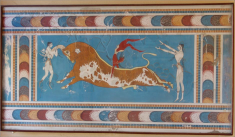Speaker
Description
Abstract: We consider quantum steering by non-Gausssian entangled states. The Reid steering criterion based on the Heisenberg uncertainty relation fails to detect steerability for many categories of such states. Here, we derive a tighter steering criterion using the Robertson–Schrödinger uncertainty relation. We show that our steering condition is able to detect steerability of several classes of non-Gaussian states such as entangled eigenstates of the two-dimensional harmonic oscillator, the photon subtracted squeezed vacuum state and the NOON state.
Summary:
Based on two assumptions of Locality (The measurement choices for one system do not affect the measurement outcomes of a spatially separated system) and sufficient condition of Realism (If, without in any way disturbing a system, one can predict with some specified uncertainty the value of a physical quantity, then there exists a stochastic element of physical reality which determines this physical quantity with at most that specific uncertainty [\textit{Phy. Rev. A 80, 032112}]) Reid in 1989 proposed an experimental scenario based on the quadrature phase components of two correlated and spatially separated light fields [\textit{Phy. Rev. A 40, 913}] and pointing out the fact that in quantum mechanics their exists such correlations in composite quantum systems described by entangled states, where it is possible by suitable choice of measurements on a quantum system to infer the outcomes of two non commuting observables corresponding to a spatially separated quantum system, without interfering with the later system, with precision greater than the Heisenberg's Uncertainty limit.\
Let two spatially separated parties, say, Alice and Bob, share a bipartite quantum system. Alice measures $\hat{X}_{A1}$ and $\hat{X}_{A2}$ on her quantum system and based on the outcome $x_{A1}$ and $x_{A2}$ she can make an estimate of the result for Bob's outcome $x_{B1}$ and $x_{B2}$ correspond to the Bob's measurements $\hat{X}_{B1}$ and $\hat{X}_{B2}$. Alice can thus estimate the uncertainties (standard deviation of the Alice's estimated result of Bob's outcome from the original outcome correspond to the Bob's measurement) of the outcomes of the two observables. Now, by Heisenberg's uncertainty principle, quantum mechanics imposes a limit to the precision with which one can determine the values to observables corresponding to noncommuting operators and by the locality condition Alice's choice of measurements cannot affect the elements of reality (Outcomes of Bob's measurements) of Bob. Therefore, using the sufficient condition of Realism, the precision with which one can determine the product of the average inference variances of two noncommuting observables is limited by Heisenberg's Uncertainty Principle. Hence, violation of this Reid inequality can be interpreted as signature of the correlations embodied in an Entanglement that is called Steering. \
In recent developments in quantum information theory, continuous variable non-Gaussian states have applications in several protocols discussed in Ref.[\textit{Phys. Rev. Lett. 82, 1784(1999)}]. Extensions of the entanglement criterion [\textit{Phys. Rev. A 83, 032118 (2011)}, \textit{Phys. Rev. A 90, 062303 (2014)}] for non-Gaussian states as well as the Bell violations [\textit{Phys. Rev. A 76, 052101 (2007)}] have been studied of such states. It is thus relevant to study steering by non-Gaussian entangled states. The inferred variance inequality based on the Heisenberg uncertainty relation proposed by Reid fails to reveal the steerability of such states. In Ref. [\textit{Phys. Rev. Lett. 106, 130402 (2011)}], Walborn et al raised a question as to whether such states violate some higher order steering inequality in the sense that Reid's criterion based on second order moment and thus failed to detect the correlations which are of higher than the second order in the tested observables. In the present work we ask a somewhat different though related question regarding the steerability of pure non-Gaussian entangled states: Is the Reid's inequality based on variances tight enough to reveal steerability for various categories of non-Gaussian states ? \
Quantum steering is fundamentally linked with quantum uncertainty, and hence, other versions of uncertainty relations have also been employed to obtain correspondingly different steering relations such as the entropic criterion [\textit{Phys. Rev. Lett. 106, 130402 (2011)}] and the fine-grained [\textit{Phys. Rev. A 92, 042317 (2015)}] steering inequalities. The steering bound proposed by Reid is based on the Heisenberg uncertainty relation for two conjugate observables. A more generalized form of variance based uncertainty relation was derived by Robertson and Schrödinger for any two Hermitian observables. In order to address the question posed above, in this paper we investigate the Reid criterion in context of the Robertson-Schrodinger uncertainty relation for the purpose of studying steerability of non-Gaussian states. We have found out the fact that our steering condition is tighter than the Reid criterion based on the Heisenberg uncertainty relation. We have studied steering by several examples of non-Gaussian entangled pure states, such as the 2D harmonic oscillator states (LG beams), the photon subtracted squeezed vacuum state and the NOON state which do not demonstrate steering through the Reid criterion.\




